 | « Back to article | Print this article |
Rahil Ansari, Audi India head, said the first batch to be imported will include an order of 200 CBU (completely built-up) vehicles.
These will be largely distributed across dealerships in Mumbai, New Delhi, Bengaluru, Chennai, Hyderabad and others major cities.
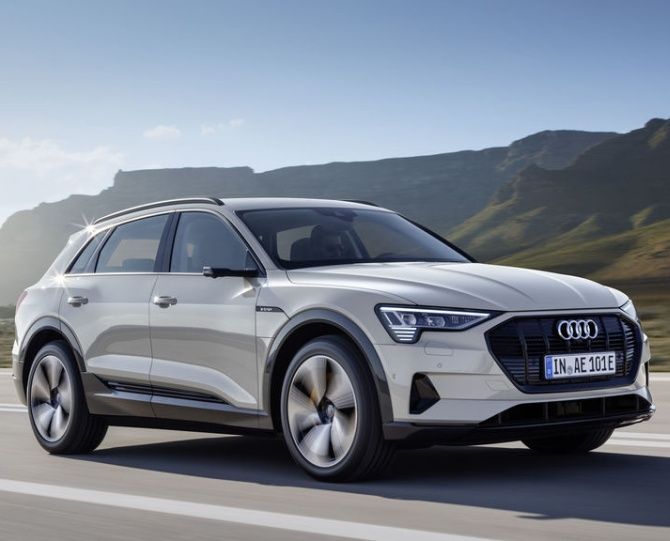
Premium carmaker Audi will drive its all-electric SUV e-tron into India by the end of the year.
This will be first in a 12-vehicle line-up of global electric vehicles.
Rahil Ansari, Audi India head, said the first batch to be imported will include an order of 200 CBU (completely built-up) vehicles.
These will be largely distributed across dealerships in Mumbai, New Delhi, Bengaluru, Chennai, Hyderabad and others major cities.
He added that a cut in the goods and services tax from 28 per cent to 12 per cent for e-cars was a good initiative, but Ansari was hopeful that the Budget in July will cut the levy further to 5 per cent.
That is significant for cars such as e-tron that attract higher import duty (100 per cent) as they are CBUs. They are usually priced at Rs 1 crore or higher.
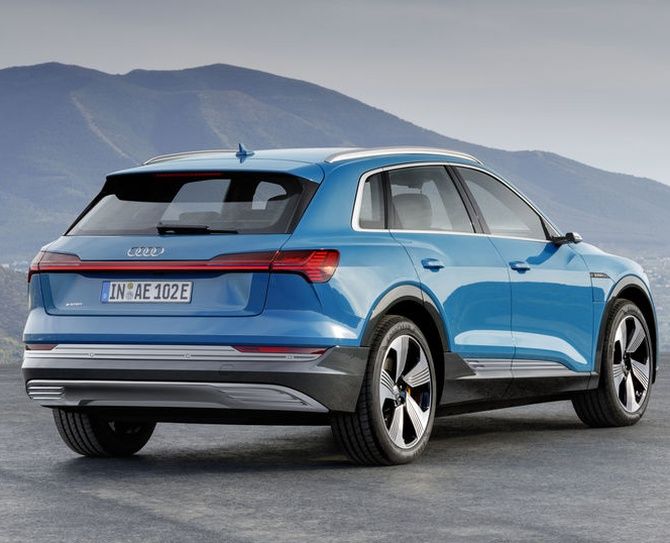
Audi's e-tron is a large 5-seater and looks similar to the Q8 SUV.
It is powered by a chargeable battery, which is as large as a mattress and weighs 700 kg, and kept at optimum temperatures through a liquid cooling system.
When fully charged, it gives the car a driving range of around 400 km.
While Audi did not disclose how much it will cost to replace a battery, it will be expensive.
The battery is the heart of the car and designed to power a 2,600-kg SUV to top speeds of 200 km per hour.
The battery will have an eight-year warranty, and the charging apparatus for the car is a simple 2-pin plug that can be hooked up in most sockets across office and residence buildings. The charging dock and connector come at no extra price.
The e-tron has been a work-in-progress vehicle since 2015 when it was showcased at international motor shows; it was launched in global markets this year in May.
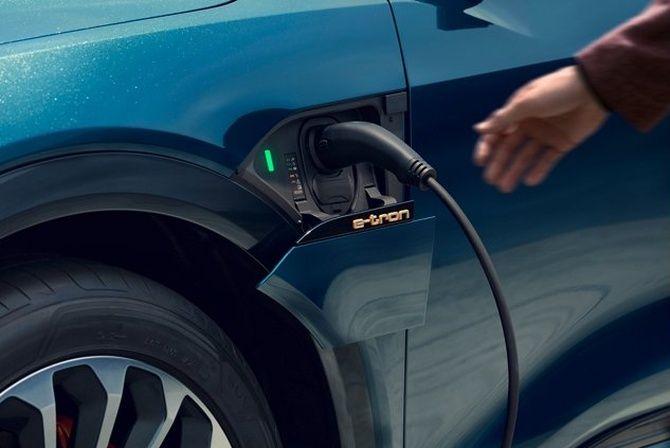
What are other luxury carmakers thinking?
BMW India's officials said while they brought the first hybrid plug-in, i8, to India three years back, they felt the charging infrastructure was still not mature.
They want to hold off on an all-electric rendition until that time.
Audi's Ansari, however, said their e-tron can be hooked up almost anywhere.
A full-range of 400 km can actually be topped up in a couple of hours, every other day or so, given that most city commuters in metros do not travel more than 60-70 km daily.
Will other electric cars follow the e-tron? Ansari said it was very likely, but that will hinge on the success of the e-tron.
Industry sources said the electric line-up, to be fully launched by 2025, includes a sport-back SUV, a sports car, and also station wagon.
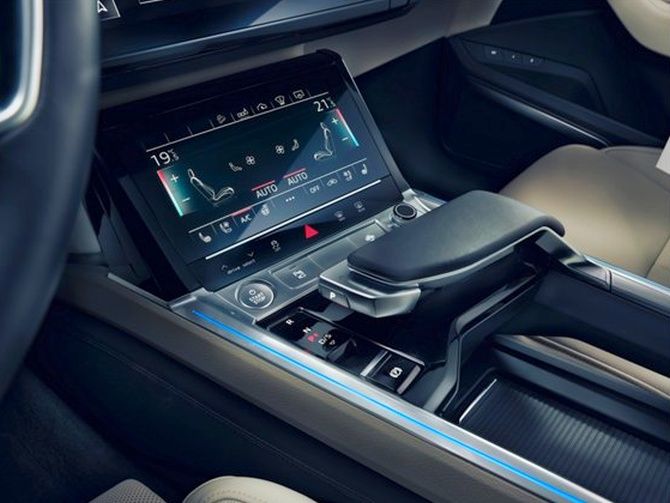
So far as mass production of mainstream electric car sales in India go, the field has been limited to a few models (delet:ea mixed bag), led by SUV maker Mahindra.
It acquired a start-up, Reva, in 2010 and then used its technology to roll-out the e-20 and the e-Verito.
The second one was derived from the Logan sedan produced through a joint venture with Renault.
Those vehicle volumes have been tiny and cars that have been launched have been more akin to quadricycles or compact four-seaters as opposed to larger highway-ready vehicles with a full range of modern technology and features.
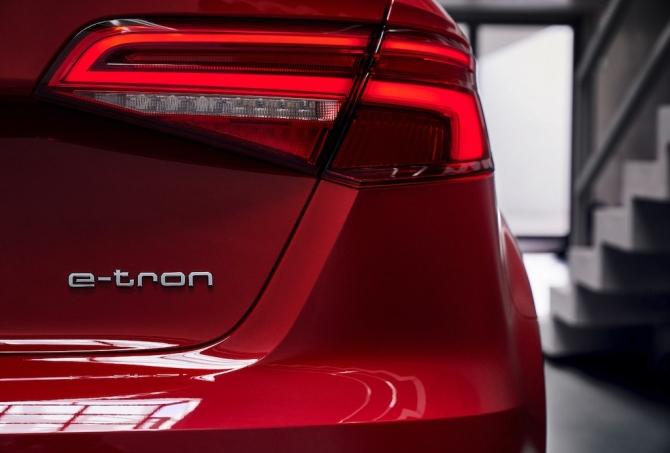
Other cars that aim to go fully electric in the mass manufacturer segment include Maruti's WagonR and Tata Motors Tigor and Tiageo, industry analysts said.
"This is a clear indication that premium automakers are ready with their electric technology for our roads given that the government is keen to make such technologies mainstream but the level of widespread acceptance for fully electric cars will only be accurately measured in a couple of years," said Suraj Ghosh, principal analyst, Southasia Powertrain Forecasts, IHS Markit Automotive.
He added the electric vehicle market by 2030 is expected to reach around 4 per cent of the entire market -- approximately 350,000 cars.